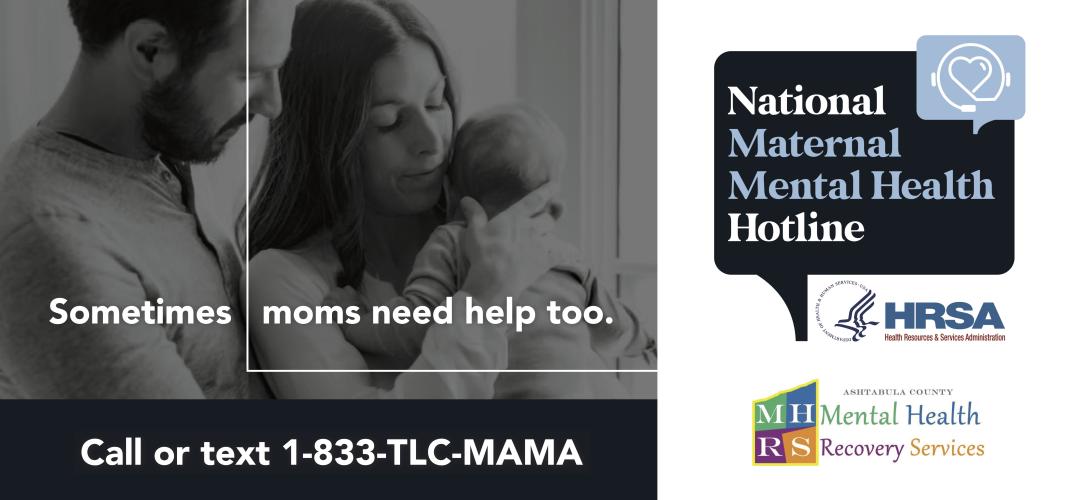
Voinovich School champions collaborative efforts to uplift new mothers in Ohio counties

While the joy of welcoming a new baby is often celebrated, the realities of the postpartum period can bring significant emotional challenges for many mothers.
The United States has the highest maternal mortality rate in the world among high-income countries, with more than 22% of those deaths caused by suicide, drug overdoses, and mental health issues.
As part of a four-year federal grant from the Health Resources and Services Administration, the Voinovich School of Leadership and Public Service has partnered with four rural Ohio counties to promote the National Maternal Mental Health Hotline as a resource for new mothers who may be experiencing feelings of anxiety, depression, or being overwhelmed.
In 2021, the Voinovich School partnered with health professionals in Ashtabula, Fairfield, Sandusky, and Seneca counties to conduct a survey, creating a snapshot of maternal mental health in each location. This work led to a collaborative approach to reducing the stigma associated with seeking mental health care.
Approximately 35-40% of Americans report believing that seeking mental health treatment carries some form of stigma, but those surveyed said it was more important to show people that prevention works, treatment is effective, and people recover rather than focusing on the issue of stigma itself.
“People don’t want lectures about stigma,” says Holly Raffle, professor of leadership and public service at the Voinovich School, who leads the school’s Partnership for Community-Based Prevention program. “They want to know how to get help and how to help others because if mental health becomes part of the daily conversation, the stigma surrounding seeking help will decline.”
To promote the hotline, each county utilized grant funds to implement a media campaign focused on mothers that used the tagline: “Sometimes moms need help too. Let’s talk about it.”
In Ashtabula County, the campaign was supported by a community baby shower event, where mothers-to-be took home goodie bags with the hotline number printed on the outside.
“Being able to give them something helped raise awareness,” says Christy Fisher, director of prevention and community engagement at the Ashtabula County Mental Health and Recovery Services Board. “They really appreciated that connection.”
One finding in the survey—and bolstered by feedback from the in-person events—is that family and friends must also be aware of the hotline to share the resource with mothers who need it.
“We had many people who weren’t mothers mention they knew of someone who struggled after having a child,” says Fisher. “We've gotten a lot of positive feedback, and people will tell stories about having a hard time and having no one to turn to. It was good to see that people believe that [the hotline] was needed.”
According to Raffle, the Voinovich School and various partners will continue to promote the hotline in unique ways, such as giving lanyards to staff in doctors’ offices that have the hotline information on them, as well as doing webinars on the project so others can learn how to promote the hotline in their communities.
Another ad blitz started in early May, centered around Mother’s Day (May 11). The campaign will continue throughout the month, hopefully reaching an expanding audience.
“At first it was just moms, and now we're targeting everyone around mom too,” she says. “Let's have that conversation because sometimes mom is so busy taking care of others that she doesn’t take the time she needs to help herself.”
The National Maternal Mental Health Hotline (1-833-TLC-MAMA) is a free and confidential service offering 24/7 support via call or text to new and expecting moms and their loved ones.
